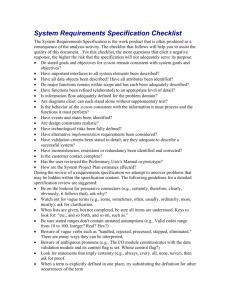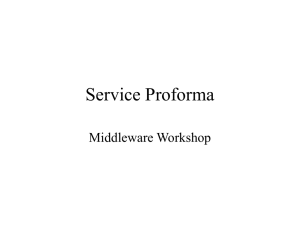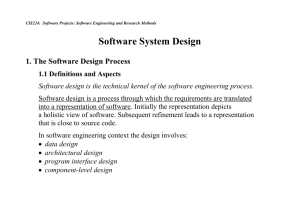CSC 131 – Computer Software Engineering –
advertisement
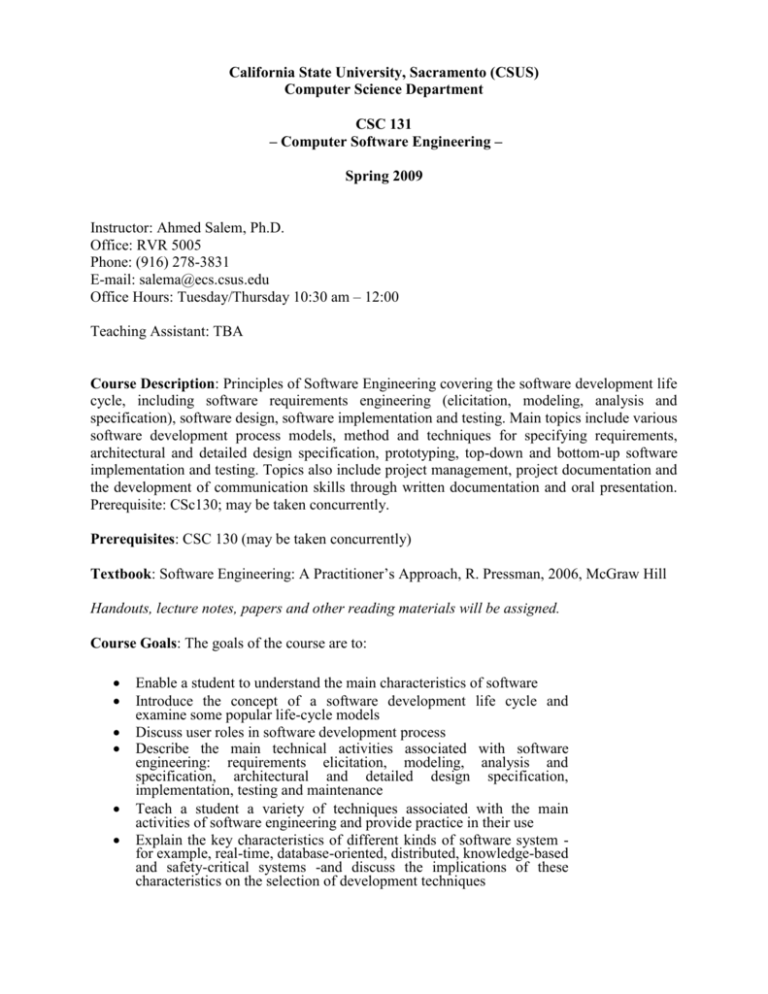
California State University, Sacramento (CSUS) Computer Science Department CSC 131 – Computer Software Engineering – Spring 2009 Instructor: Ahmed Salem, Ph.D. Office: RVR 5005 Phone: (916) 278-3831 E-mail: salema@ecs.csus.edu Office Hours: Tuesday/Thursday 10:30 am – 12:00 Teaching Assistant: TBA Course Description: Principles of Software Engineering covering the software development life cycle, including software requirements engineering (elicitation, modeling, analysis and specification), software design, software implementation and testing. Main topics include various software development process models, method and techniques for specifying requirements, architectural and detailed design specification, prototyping, top-down and bottom-up software implementation and testing. Topics also include project management, project documentation and the development of communication skills through written documentation and oral presentation. Prerequisite: CSc130; may be taken concurrently. Prerequisites: CSC 130 (may be taken concurrently) Textbook: Software Engineering: A Practitioner’s Approach, R. Pressman, 2006, McGraw Hill Handouts, lecture notes, papers and other reading materials will be assigned. Course Goals: The goals of the course are to: Enable a student to understand the main characteristics of software Introduce the concept of a software development life cycle and examine some popular life-cycle models Discuss user roles in software development process Describe the main technical activities associated with software engineering: requirements elicitation, modeling, analysis and specification, architectural and detailed design specification, implementation, testing and maintenance Teach a student a variety of techniques associated with the main activities of software engineering and provide practice in their use Explain the key characteristics of different kinds of software system for example, real-time, database-oriented, distributed, knowledge-based and safety-critical systems -and discuss the implications of these characteristics on the selection of development techniques Provide sufficient knowledge for a student to be able to choose development techniques, tools and life-cycle models for a given project Give students an understanding of the importance of quality assurance, human factors, professional issues and project management in software development Give students an understanding of the importance of user involvement throughout the development process. Illustrate the role of CASE tools in software engineering. Demonstrate the need for and practice of effective communication skills, both oral and written. Major Topics Covered: Software development process models Software system engineering Requirement engineering Structured analysis Object-Oriented analysis Design (design and design documentation) Structured and Object-Oriented design UML o Use cases o Class diagram o Sequence diagram o Collaboration diagram o Activity diagram Coding and integration Software testing and maintenance Project planning Project management Current issues and trends Academic Honesty: All students are expected to maintain high standards of academic integrity. All work you submit should be your own. All suspected cases of academic dishonesty would be reported and pursed. Attendance policy: All students are expected to attend all classes. Unexcused absences from midterm exam, final exam, or project presentations will result in zero grades for what the student missed. Grading: Exam # 1 Exam # 2 Project Project Presentation 30% 35% 30% 5% Project: Team selection and organization Preliminary Problem Analysis Software Requirement Specification (SRS) Software Design – Software Design Documents (SDD) Software Test Plan & Defect Reports Implementation Presentation - teams are required to present their final project Class Participation: All students are expected to make a regular contribution to the class. You should be prepared to offer your comments regarding material presented, ask interesting questions during class, and respond with good answers to questions asked in class. *Quality documentation is critical for the success of the project and counts toward your project grade All work submitted must be typed. Grading Scale: 94-100 87- 89 80- 83 74- 76 67- 69 60- 63 A B+ BC D+ D- 90- 93 84- 86 77-79 70- 73 64- 66 59 or less AB C+ CD F
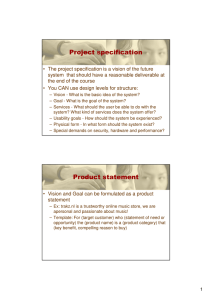
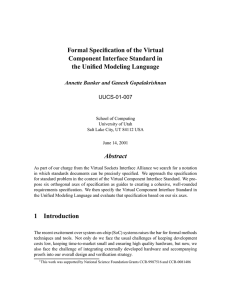
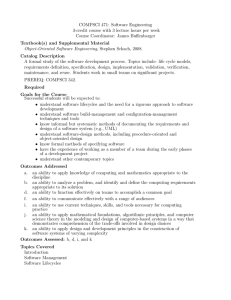

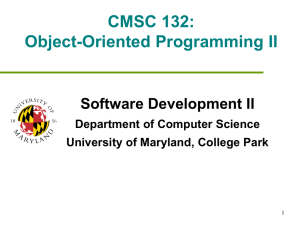
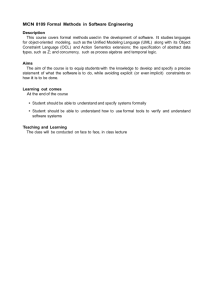
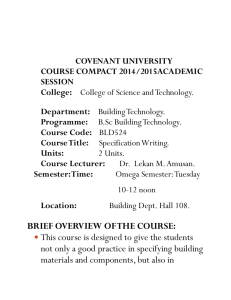
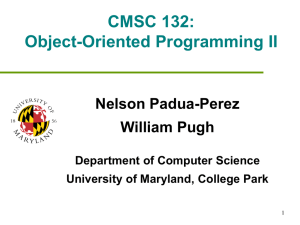
![Purchase Request Form [L02]](http://s3.studylib.net/store/data/008565490_1-0019a09aa88e76e75b2b5be9eeb9fadb-300x300.png)
